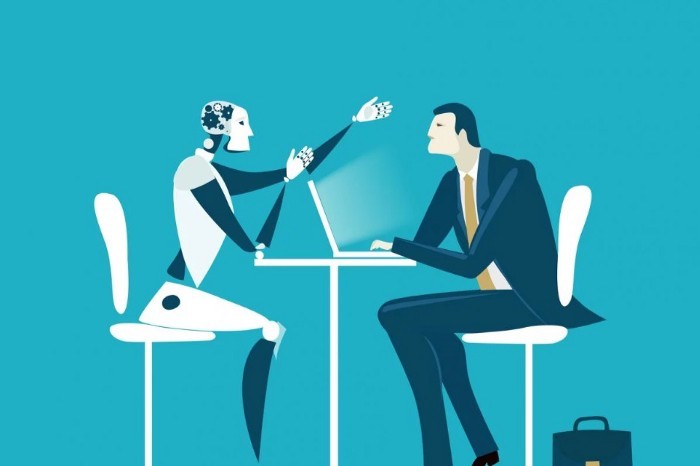In a world where the rapid development of technology is changing our surroundings, we recognize that artificial intelligence (AI) is not just a technical innovation but also a catalyst for the transformation of all spheres of life. We see the potential of AI in various fields - from recruiting and education to manufacturing and finance. Therefore, based on the European Business Association educational platform in Odesa, we have created the "AI in Business" project for collaboration, exchange of experience, and learning best practices in the application of artificial intelligence.
The European Business Association platform is not only the largest and most influential international Association of companies in Ukraine, where businesses can protect their interests, have transparent dialogue with authorities, and develop both individually and collectively. EBA is also a vibrant business community and a place where opportunities and innovations converge.
The project on Artificial Intelligence (AI) is an essential element of educational development that we have initiated considering the growing interest of businesses in the opportunities provided by this technology. We believe that educated professionals capable of working with AI will play a key role in improving business processes and achieving competitive advantages.
Artificial intelligence is becoming a key player in transforming work in the field of human resources management (HR). Its impact is felt in all aspects of HR processes - from recruiting to talent management. In this blog, we will explore how AI has already influenced the modern world of HR, whether it will completely replace HR professionals and recruiters, which competencies become critical for successful work in this new context, and how the future labor market will look under the influence of AI.
1. Will AI replace HR professionals and recruiters?
AI can significantly simplify and accelerate the candidate selection process. Resume analysis algorithms can quickly screen candidates based on certain criteria, freeing HR specialists from routine work. Chatbots can conduct preliminary interviews automatically, saving time as well. However, it is important to remember that the human factor is key in the recruitment pro courses. People can notice subtle details that AI may miss. Intuition, empathy, and the ability to adapt to specific situations are precisely the traits that make people indispensable in the recruitment process. Another key aspect is interaction with candidates. Although chatbots can conduct preliminary interviews, it is important to have the opportunity to speak with a real person at later stages of selection. The sense of interest and attention from the recruiter can influence the candidate's decision to accept the job offer. It is also important to consider the psychological aspect. People can notice important nuances in the candidate's behavior during the interview, which can provide valuable information about their character and compatibility with the team.
2. What competencies does a modern HR professional need to remain relevant?
In the diverse world of business that is constantly changing, a modern HR professional must be prepared for challenges and changes, demonstrating a wide range of skills and competencies. The tasks and requirements for personnel management are becoming increasingly complex, requiring HR professionals to develop and update their skills. It is difficult to imagine modern HR work without the use of various technologies. From knowledge in HR software to the ability to work with large volumes of data and analytics, technological literacy becomes a key competency. A modern HR professional should be able to analyze data and draw useful conclusions. Analytical skills help make informed decisions, optimize processes, and predict trends in the labor market.
In today's business environment, HR professionals need to be strategically oriented. The ability to understand the company's strategic goals and develop HR policies that align with these goals makes them an integral part of the senior team. Implementing new HR initiatives and programs often requires project management skills. This includes the ability to plan, define tasks, allocate resources, and effectively interact with various stakeholders. Understanding current trends in education and the ability to innovate in learning processes become important competencies. Changes in the business environment are happening rapidly, and HR professionals need to remain effective and competitive. With these competencies, a modern HR professional can successfully implement innovations, solve complex tasks, and contribute to the company's success in the demanding business environment of the 21st century.

3. The future of the labor market with further AI impact. Which professions will disappear, and which will emerge?
Artificial intelligence is spreading, bringing revolutionary changes to various spheres of our lives. Initially, AI will lead to the automation of routine tasks. Professions that require repetitive actions and low levels of creativity may disappear. Jobs in assembly, certain types of information processing, and manufacturing may be replaced by automated systems. However, this also opens new opportunities. Specialists in AI and data analysis will be in high demand. They will be responsible for the development and maintenance of intelligent systems, as well as for the analysis and interpretation of large volumes of data for strategic decision-making. With the development of AI, there will be a demand for engineers and technical specialists. Specializations related to the development and maintenance of robots, the Internet of Things (IoT), and other advanced technologies will be particularly important. Creative and social professions that are difficult to replace with artificial intelligence will also gain new significance. Artists, designers, psychologists, social workers, and other specialists who work with emotions, creativity, and interpersonal relationships will become essential in society. The increasing influence of AI means that skills such as analytical thinking, problem-solving, creativity, and interpersonal skills will become more important. People who can effectively work with technology while demonstrating creativity in task solving will be the most competitive in the labor market.
4. Practical innovative programs in HR management.
With the rapid development of technology, HR professionals have gained powerful tools in the field of Artificial Intelligence (AI), which are transforming traditional approaches to personnel management. Here are a few practical programs and tools that are revolutionizing the HR sphere.
The world of language generation is experiencing a boom thanks to two titans: Google Bard (Gemini) and GPT-chat. These models can generate text of incredible quality, making them indispensable tools for creativity, research, and many other fields. Both technologies open new horizons of innovation, providing users with powerful tools for generating high-quality text and solving various tasks in the field of language processing. Thanks to them, we are witnessing a real boom in the field of language generation, opening new opportunities for communication, research, and technology development. Artificial intelligence can significantly facilitate the process of writing job descriptions. To do this, you can use various tools, including ChatGPT and Google Bard (Gemini). To generate a relevant description, provide AI with all the information about the position. Additionally, you can upload examples of competitors' announcements or platform requirements to the program. AI will analyze the provided information and provide the most relevant text.
Recruiters can also use algorithms to automatically analyze and classify the resumes of collected candidates. AI can highlight keywords, skills, and experience suitable for vacancies and filter out candidates who do not meet the requirements. A similar principle has long been used by the LinkedIn Recruiter search bar: by analyzing keywords and other specified filters, the program offers you only relevant candidates.
It is also worth mentioning HARPA AI - a Ukrainian startup that has developed an artificial intelligence (AI) platform for task automation and text generation. Harpa AI will help you get the most out of browsing pages, whether it's composing an outstanding email, compressing a large report, or even copying your writing style for social media posts.
_1713863234.jpg/pPb2QAJO4MDTDLCcPf1I8KkzVCX5CowC5EThrQCg.jpg)
Thus, artificial intelligence has already changed the realities of modern HR, becoming a true assistant in solving routine tasks. However, the harmony between technology and the human factor is truly important, where HR professionals can use AI to improve processes and focus on more strategic and human aspects of their work. The future of the labor market necessitates continuous development and adaptation but also opens new opportunities for creativity and innovation.
Therefore, we invite you to join our discussions, where innovation meets opportunities, and dialogue with stakeholders creates strong foundations for collaboration and the successful future of your companies.
Information about the Impact of AI on the modern world of HR was discussed during a meeting of the Southern Ukrainian Office of the European Business Association "How artificial intelligence has already changed the modern world of HR." Among the invited experts of the event were: Nadiia Savchenko, founder of HR Agency Key People, head of EBA Odesa HR Hub, and Anna Krysenko, recruiter at HR Agency Key People.





















